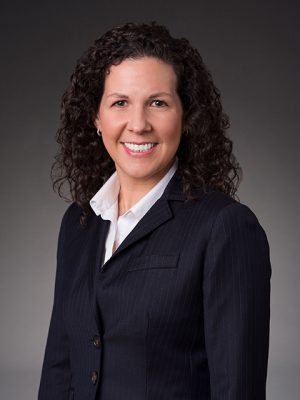For each issue since its inception, FlexPack VOICE ® has hosted a question-and-answer segment with an industry leader. In this issue, we interview Amy E. Moore, vice president of Westlake Corp.’s polyethylene (PE) division.
In her role, Moore has responsibility for the profit and loss of the PE business and provides leadership for developing and executing the company’s strategy.
“The team I lead consists of sales and marketing, product management, research and development, technical service, product development, customer service, and supply chain,” Moore says.
Moore grew up in Beaumont, Texas, where the refining and petrochemical industry is at the heart of the community, she says.
“My first job after graduating with my chemical engineering degree from Lamar University was as an operations engineer at a local petrochemical plant,” Moore adds. “While working at the plant, I went to school in the evenings to complete my MBA, which opened the doors to opportunities in the business and sales area. I really enjoy the combination of business and engineering and the opportunities to lean on both through my career.”
FlexPack VOICE®: Tell us a little bit about your company.
Amy E. Moore: Westlake is a global producer of chemicals, polymers, and building products focused on enhancing people’s lives every day, and our polyethylene business provides key raw materials to flexible packaging producers around the world.
FPV: What do you see as the major challenges facing the industry in 2023, globally and/or domestically?
AEM: In addition to the current inflationary concerns, supply chain and logistics could remain an ongoing challenge. As an industry, we rely on the global supply of raw materials to operate our assets, as well as a robust network of logistics services to deliver our products to customers around the world. The disruptions seen in recent years have shown how important it is to have reliable alternatives and be prepared to handle the unexpected. The pace of sustainability requirements is also intensifying. We have been actively working to understand and meet the growing needs of our customers and communities for reducing carbon emissions, reducing environmental waste, and increasing circularity.
FPV: Sustainability often comes up when answering that question, so what is the industry doing well and where does it need to do better in this area?
AEM: Broadly, everyone in the industry recognizes the opportunity and need to address sustainability and increase the circularity of our products. No single market participant or sustainability project solves the issues. It is a journey we are all taking together, but we recognize there is still a long road ahead to establishing efficient infrastructure for supporting the growing needs for circularity.
FPV: What about your company?
AEM: Westlake has always been focused on being a good neighbor in the communities where we operate and live. We are actively participating in industry organizations seeking to drive sustainable actions, including the global Alliance To End Plastic Waste. Within the poly-ethylene business, we are helping our customers incorporate post-consumer recycled content into their film products while maintaining physical properties through our PIVOTAL™ product line. We are also working in partnership with our customers on solutions for redirecting their own internal waste streams away from landfills and toward marketable products. Across the Westlake businesses, we are increasing the use of renewable energy and feedstocks to produce more sustainable products.
FPV: Generally, how do you see government regulations as they pertain to the industry? What should change? What would you like to see from federal spending on infrastructure when it comes to recycling?
AEM: We would like to see government support incentives to allow recyclers to advance technologies to collect and separate mixed waste streams. This is becoming increasingly more important as the demand for recycled materials increases.
FPV: What is your company doing to encourage diversity and inclusion efforts?
AEM: As an Asian American and Pacific Islander-founded business, Westlake has championed bringing people of different cultures and backgrounds together in the workforce from its start. Across our global sites, our workforce represents the diversity of the local communities in which we operate. In Houston, for example, we have a highly diverse workforce, and we are encouraging professional development through focused business resource groups such as the Women of Westlake. We continue to build on these efforts across the company to provide employees with opportunities to build com-munity with one another. Our founders believe a diverse group of people brings together the best ideas, and this belief is built into and shared within our company culture.
FPV: What would you tell someone who is thinking about a career in the industry if they were to ask for your advice?
AEM: We are in an incredibly innovative industry, producing materials that are critical to health, life, and safety that truly enhance people’s everyday lives. It is exciting to be a part of an industry that supplies so many key products to the world. As an engineer, it is a natural path to enter into petrochemicals and packaging, but we have needs for employees from all different backgrounds—not just technical and engineering. I would encourage anyone entering our industry to remain open to new opportunities across all areas of the business.
FPV: Is there a particular experience that stands out in your career, good or bad, or both?
AEM: I have had great experiences through all of the roles I have taken on since the start of my career. Even some of the less exciting roles taught me skills that helped me with future opportunities. Being selected as the vice president of our polyethylene business has definitely been a highlight, and I am fortunate to have a talented team to work with.
